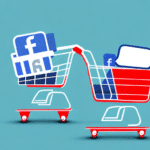Using SMS Marketing to Boost Your Ecommerce Sales
In today's competitive landscape, ecommerce businesses must effectively stand out and reach their target audiences. SMS marketing has emerged as a powerful tool for ecommerce sellers, offering high engagement rates and direct communication with customers. This article explores the significance of SMS marketing, its benefits for audience engagement, and best practices for developing campaigns that drive sales.
Why SMS Marketing is a Game-Changer for Ecommerce Sellers
SMS marketing stands out due to its exceptionally high open rates. While email marketing averages around a 20% open rate, SMS messages boast nearly a 98% open rate, ensuring that your message is almost always seen by your audience. This high visibility makes SMS marketing a potent channel for customer engagement and influencing purchasing decisions.
Moreover, SMS allows for immediate communication. Unlike emails, which may be checked sporadically, most individuals keep their mobile phones with them and are likely to view your message within minutes. This immediacy is ideal for time-sensitive promotions, such as flash sales or urgent updates like order confirmations.
According to a 2023 report by Statista, the prevalence of smartphone usage and the ubiquity of text messaging contribute to the continued effectiveness of SMS marketing in the ecommerce sector.
Enhancing Audience Reach with SMS Marketing
SMS marketing enables ecommerce businesses to send personalized and targeted messages directly to customers' mobile devices. By segmenting audiences based on factors such as location, interests, and purchase history, businesses can tailor their campaigns to specific customer segments. This personalization fosters stronger customer relationships, increases brand engagement, and ultimately drives higher sales.
The personalized approach of SMS marketing not only boosts engagement but also enhances customer retention, as customers receive relevant and timely messages that align with their preferences and behaviors.
Benefits of Personalized SMS Campaigns
- Higher engagement rates through targeted content
- Enhanced customer loyalty and repeat purchases
- Increased conversion rates due to relevancy
Driving Traffic to Your Ecommerce Store with SMS Marketing
Beyond engaging and converting customers, SMS marketing plays a crucial role in driving traffic to ecommerce websites. By sending timely information about new products, promotions, or sales, businesses can encourage customers to visit their online stores and make purchases. This heightened traffic can improve website metrics, enhance search engine rankings, and subsequently increase overall revenue.
Additionally, SMS can be leveraged to offer exclusive deals and discounts to loyal customers, creating a sense of exclusivity and urgency that compels customers to take action. Reminders about abandoned carts or items left in wishlists can also be sent, prompting customers to return and complete their purchases.
Best Practices for Creating Effective SMS Marketing Campaigns
Developing successful SMS marketing campaigns requires strategic planning and execution. Key best practices include:
- Segmenting your audience to ensure tailored messaging
- Keeping messages concise and clear
- Incorporating strong calls-to-action (CTAs)
- Scheduling messages appropriately to avoid overwhelming recipients
- Monitoring and analyzing campaign performance for continuous improvement
Personalization is also crucial. Including the recipient’s name or referencing their purchase history can significantly increase engagement and response rates. Additionally, ensuring messages are mobile-friendly and easily readable on small screens enhances user experience and effectiveness.
Tips for Personalizing SMS Messages
- Use the recipient’s name in the greeting
- Reference previous purchases or interactions
- Tailor offers based on customer behavior and preferences
Building a Robust SMS Subscriber List
A strong subscriber list is the foundation of effective SMS marketing. Strategies for growing this list include:
- Implementing opt-in forms on your website and social media platforms
- Offering incentives such as exclusive discounts for new subscribers
- Promoting your SMS list through other marketing channels like email and online advertising
- Ensuring transparency about message frequency and content to maintain subscriber trust and reduce opt-outs
Collaborating with industry influencers or complementary businesses can also expand your subscriber base. Joint promotions can introduce your SMS offerings to a broader audience, driving additional sign-ups.
Regular engagement with subscribers through personalized messages and exclusive content helps maintain their interest and prevents list attrition.
Analyzing SMS Campaign Metrics: Key Indicators
To optimize SMS campaigns, it’s essential to track and analyze performance metrics. Critical metrics to monitor include:
- Open Rates: Percentage of messages opened by recipients
- Click-Through Rates (CTR): Percentage of recipients who clicked on links within the message
- Conversion Rates: Percentage of recipients who completed a desired action, such as making a purchase
- Opt-Out Rates: Percentage of recipients who unsubscribe from the SMS list
Assessing the timing of messages—such as the time of day or day of the week—can provide insights into when your audience is most responsive. Additionally, monitoring message frequency helps in maintaining an optimal balance that keeps subscribers engaged without overwhelming them.
By leveraging data-driven insights from these metrics, businesses can refine their SMS strategies to enhance effectiveness and ROI.
Crafting Compelling SMS Messages that Convert
Creating persuasive SMS content is vital for driving conversions. Effective SMS messages should:
- Contain attention-grabbing elements to entice recipients
- Be succinct and direct
- Include clear and urgent CTAs
- Incorporate personalization to resonate with the recipient
- Utilize emojis or rich content sparingly to enhance engagement
Timing is also crucial. Messages should be sent when recipients are most likely to engage, taking into account their daily routines and time zones. For instance, avoiding sending messages during typical work hours for a professional audience ensures higher engagement rates.
Regularly evaluating message performance helps in understanding what resonates with your audience, enabling continuous optimization of your SMS content strategy.
Personalizing Your SMS Marketing Campaigns
Personalization is a cornerstone of effective SMS marketing. Tailoring messages with details like a recipient’s name, location, or past purchase behavior creates a more engaging and relevant experience. This personalized approach not only strengthens customer relationships but also increases the likelihood of conversion.
Studies indicate that personalized marketing messages can significantly enhance open and conversion rates. By delivering content that aligns with individual customer interests and needs, businesses can make their communications more impactful and drive better results.
Pros and Cons of Automated SMS Messages in Ecommerce
Automated SMS messages offer significant advantages, such as streamlining marketing efforts and ensuring timely communication. Automation can handle repetitive tasks, like sending order confirmations or shipping updates, freeing up resources for other strategic initiatives.
However, over-reliance on automation may result in messages that feel impersonal or spammy. To mitigate this, businesses should balance automation with personalized touches, ensuring that messages remain relevant and engaging. Utilizing automated yet personalized workflows can help maintain a human connection while benefiting from the efficiency of automation.
Staying Compliant with SMS Marketing Regulations
Compliance with regulations, such as the Telephone Consumer Protection Act (TCPA), is essential in SMS marketing. Key compliance practices include:
- Obtaining explicit consent from customers before sending SMS messages
- Providing easy opt-out options in every message
- Respecting customer preferences regarding message frequency and content
- Maintaining accurate records of consent and opt-outs
Adhering to these regulations not only avoids legal repercussions but also builds trust with your customer base, fostering long-term loyalty.
Integrating SMS Marketing with Other Channels for Maximum Impact
For optimal results, SMS marketing should be integrated with other marketing channels such as email, social media, and digital advertising. A cohesive multichannel strategy ensures that messaging is consistent and reaches customers through multiple touchpoints, enhancing engagement and increasing the likelihood of conversions.
Integration can involve coordinating SMS promotions with email campaigns, leveraging social media to grow your SMS subscriber list, or using data from one channel to inform strategies in another. This holistic approach maximizes the reach and effectiveness of your overall marketing efforts.
Case Studies: Ecommerce Success Stories with SMS Marketing
Several ecommerce businesses have successfully harnessed the power of SMS marketing to drive sales and build brand loyalty. For example:
- Warby Parker: Leveraged SMS to notify customers about new eyewear collections and exclusive discounts, resulting in increased engagement and sales.
- Sephora: Utilized SMS for personalized beauty tips and promotional offers, enhancing customer loyalty and repeat purchases.
These case studies highlight the tangible benefits of implementing strategic SMS marketing campaigns, demonstrating how direct communication can lead to substantial business growth.
Measuring the ROI of Your SMS Campaigns
Evaluating the return on investment (ROI) of SMS marketing campaigns is crucial for assessing their effectiveness and guiding future strategies. To measure ROI, consider the following factors:
- Revenue Generated: Total sales attributed to SMS campaigns
- Campaign Costs: Overall expenditures, including message fees and marketing resources
- Customer Acquisition Cost: Cost involved in acquiring each new customer through SMS efforts
By comparing revenue against costs, businesses can determine the profitability of their SMS marketing initiatives. Additionally, analyzing customer lifetime value (CLV) among SMS subscribers can provide deeper insights into the long-term benefits of SMS marketing.
Tracking these metrics enables data-driven decisions, allowing for the refinement and optimization of SMS strategies to enhance ROI.
Future Trends in Ecommerce and the Role of SMS Marketing
The ecommerce landscape is continually evolving, with emerging technologies reshaping customer interactions and marketing strategies. SMS marketing is poised to remain a critical component of ecommerce marketing due to trends such as:
- Artificial Intelligence (AI): AI-powered chatbots can enhance SMS interactions, offering personalized customer support and recommendations.
- Voice Assistants: Integration with voice-activated devices can create new opportunities for interactive SMS campaigns.
- Omnichannel Marketing: Seamless integration of SMS with other digital channels ensures consistent and comprehensive customer engagement.
As these trends develop, SMS marketing will continue to adapt, maintaining its relevance and effectiveness in connecting ecommerce businesses with their audiences.
In conclusion, SMS marketing remains a highly effective tool for ecommerce businesses aiming to boost sales, engage customers, and drive website traffic. By adhering to best practices in segmentation, personalization, and campaign analysis, businesses can leverage SMS to deliver impactful, targeted messages that resonate with their audience and deliver measurable results.




















